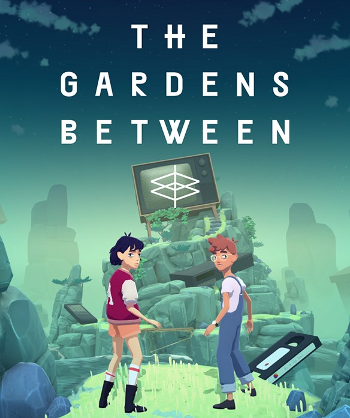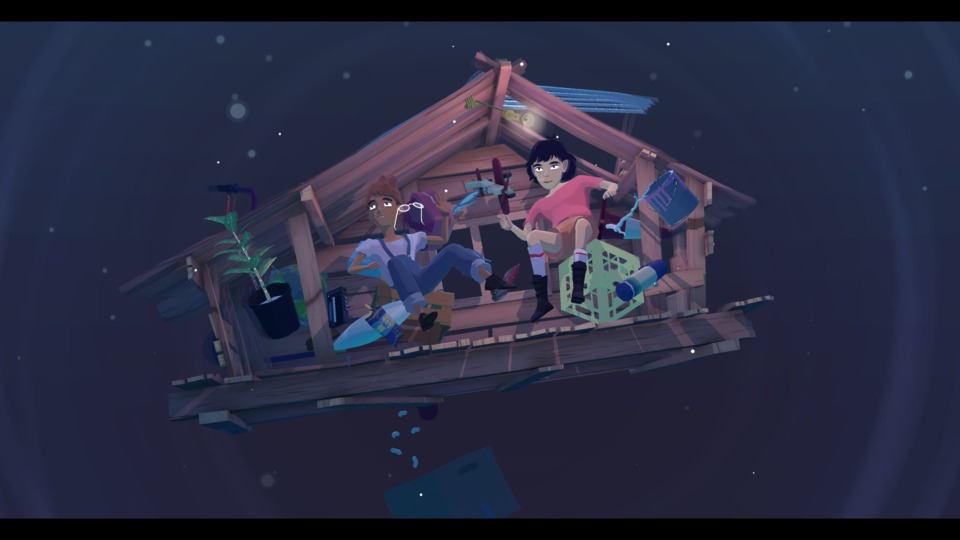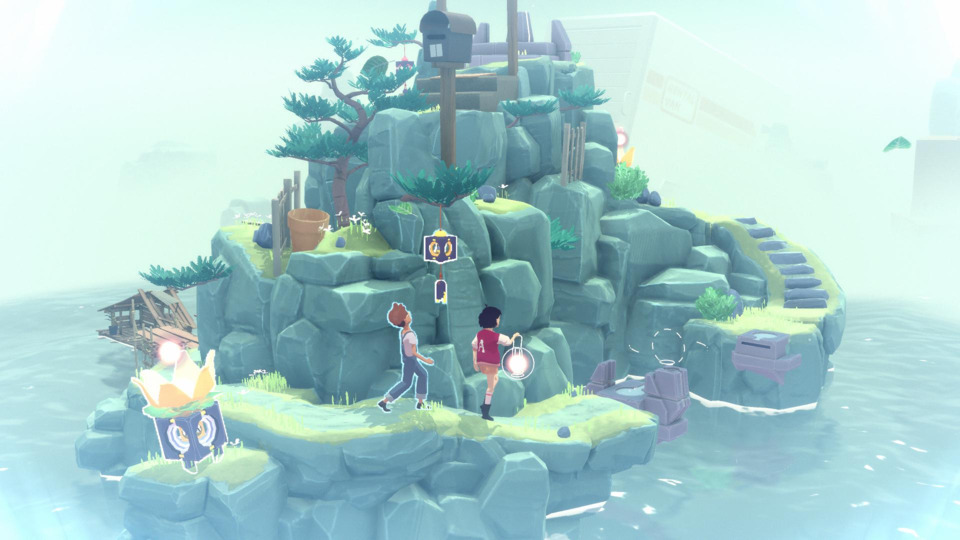Indie Game of the Week 247: The Gardens Between
By Mento 6 Comments

At the risk of losing what little credibility I have as a reviewer, I'm partial to the occasional food analogy to describe particular roles that the wide range of Indie games might have in my video gaming diet. Many are like Lunchables: miniature approximations of much larger meals that are sufficiently moreish despite their relative smallness and/or cheapness. Others are like sushi: delectable and varied and richly flavored, but served in such small portions that you're always left wanting more. The Gardens Between is a case of the latter: a wholesome, charming adventure game with a time-winding gimmick that is over far too soon, certainly way before I had my fill of its chronological puzzles.
Metaphysically representing the memories of two close friends as they spend a stormy night in a treehouse, each of the game's diorama-like "islands" builds an obstacle course out of the fragments of a shared experience recalled fondly by the duo: e.g. the day they met after their families moved next door to each other, their various adventures and misdeeds across their neighborhood, or once-in-a-lifetime moments like witnessing a shooting star. Abstract depictions of these memories make up the fixtures of each island, such as one covered with enlarged video game paraphernalia and another filled with gigantic playground equipment, all with the invariable goal of transporting a globe of light held in a lantern to the island's peak in a ritual I interpreted as one friend helping the other to recall the incident or moment in question. As the duo walk, hop, and sidle their way up the islands automatically the player's role is to simply move time forwards and backwards when necessary, occasionally stopping to interact with a button or "garden friend" (a box-like entity capable of carrying the lantern for a while) in order to reach the top with the light still in tow.

A typical example of overcoming an obstacle would be a light-absorbing black hole in the path: one that you would evade by leaving the lantern with a garden friend and collecting it again after you passed the black hole, the garden friend having found his own separate route up. Others get far more intriguing and clever, including "freezing" time (as in, not holding forward or backward) which doesn't necessary freeze everything on the screen, or using perspective in unexpected ways - the camera frequently spinning around the island to follow the duo at all times, which often grants you advantageous angles. However, I'd be loath to get too deep into the clever ways the game utilizes these tools: encountering and surpassing them is, after all, the essence of the game's challenges.
There's also a touching story going on in the midst of all this time manipulation and light transportation between the two best friends themselves. Frendt is a kind, bookish boy without too much courage, whereas Arina is a tomboyish troublemaker with a tendency to not think before she acts. The pair complement each other perfectly, and while the game leaves it vague as to any deepening relationship between the two as they get older you get a sense that they spend the majority of their free time together. You might predict the ending or you might not, but the way the game explores and emphasizes the strength of their friendship through flashbacks without the use of dialogue or captions is masterfully done. The story also plays around with time as much as the mechanics do: at one point you solve an island involving an archaic Macintosh computer and a dot matrix printer, leading you to think that this idyllic childhood may have occurred in the distant past: it's later revealed that this memory actually came from a museum trip where the computer was one of the exhibits, with Frendt and Arina sneaking past a red rope cordon to reclaim an errant paper plane.

With eight zones featuring two or three islands apiece, the game is relatively short: about an hour and change, if that. Most islands have one or two puzzles to solve, and though they can get tricky the relative dearth of moving parts means you could solve it in a matter of minutes whether you figured it out yourself or lucked upon a solution just through trial and error. The forward/backward mechanic means you have as much time as you need to take in the entire tableau - sometimes necessary, as the garden friends will hop around in and out of view, and you'll often need to track where they go to see if they pass by a light globe that they can absorb should you lend them the lantern - and the game rewards careful observation as much as it does experimentation with the active hotspots. Sadly, the game's over before it feels like it's done coming up with new puzzles; it's hard to argue that this is actually the case, however, without a version of the game that stays longer than its welcome. I suppose it works better in a thematic sense that The Gardens Between runs out of experiences to share far too soon, given how quickly childhoods (and life) passes us all by.
As I intimated in the lede, The Gardens Between is one of those attractive, ephemeral story-driven Indie adventure games that might be too brief and meretricious for many, but I appreciated its simple message of the power of friendship - that is, through the enduring memories it creates, as opposed to weaponizing it into a giant energy ball and throwing it at Frieza or something - and I'm a sucker for any kind of time-manipulation puzzle format that regularly has me nodding my head in quiet awe at its ingenuity. I'm glad I took a chance on it.
Rating: 4 out of 5.
| < Back to 246: Cathedral | The First 100 | The Second 100 | > Forward to 248: Off |
